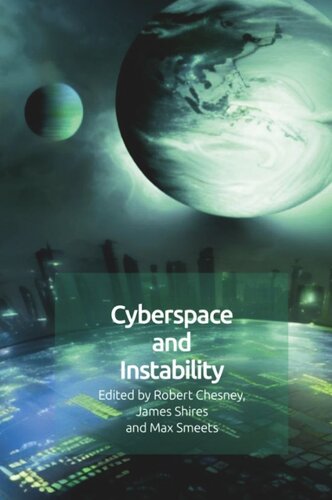

Most ebook files are in PDF format, so you can easily read them using various software such as Foxit Reader or directly on the Google Chrome browser.
Some ebook files are released by publishers in other formats such as .awz, .mobi, .epub, .fb2, etc. You may need to install specific software to read these formats on mobile/PC, such as Calibre.
Please read the tutorial at this link: https://ebookbell.com/faq
We offer FREE conversion to the popular formats you request; however, this may take some time. Therefore, right after payment, please email us, and we will try to provide the service as quickly as possible.
For some exceptional file formats or broken links (if any), please refrain from opening any disputes. Instead, email us first, and we will try to assist within a maximum of 6 hours.
EbookBell Team

4.0
36 reviewsA wide range of actors have publicly identified cyber stability as a key policy goal but the meaning of stability in the context of cyber policy remains vague and contested. Vague because most policymakers and experts do not define cyber stability when they use the concept. Contested because they propose measures that rely – often implicitly – on divergent understandings of cyber stability.
This volume is a thorough investigation of instability within cyberspace and of cyberspace itself. Its purpose is to reconceptualise stability and instability for cyberspace, highlight their various dimensions and thereby identify relevant policy measures.
This book critically examines both ‘classic’ notions associated with stability – for example, whether cyber operations can lead to unwanted escalation – as well as topics that have so far not been addressed in the existing cyber literature, such as the application of a decolonial lens to investigate Euro-American conceptualisations of stability in cyberspace.